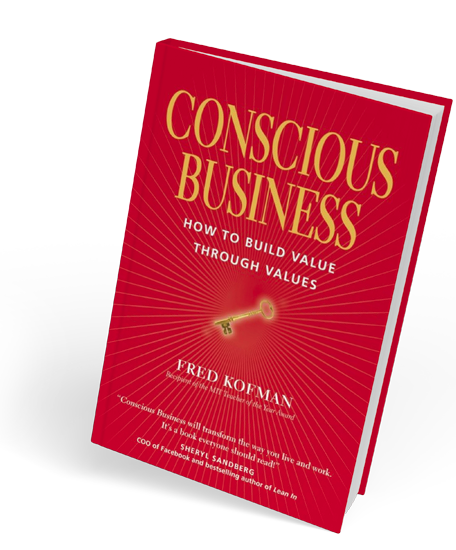Conscious Business

by Fred Kaufman
How to Build Value through Values
Disclaimer / Who Should Read?
To me, this book was extremely powerful, and fairly easily the most impactful management-related book I have read (at time of reading, anyway). That being said, I do not recommend this book under all circumstances, and I will do my best to explain why/when:
- This should not be the first management book you read. It builds on other, more basic books like "Good to Great" and "Difficult Conversations", and it also will not be as impactful without first establishing what basic principles are important in business leadership. You need the "why" before the "how".
- This may or may not be for you. I can say for sure that in earlier time periods in my life, I would not have been nearly as receptive or open to the concepts. If you find the reading uninteresting, put it down, maybe come back some other day. Read the rest of the review to perhaps determine if it seems up your alley.
TLDR
- This book starts where "Good to Great" leaves off, which is essentially a book that draws patterns of commonalities between exceptional companies and leaders. If G2G was the "what", other management books are the "why", this is the "how".
- "Conscious" should be read as Intentional, Emphathetic, Authentic, Responsible, and with Integrity. The book provides solid examples and information on how to not only live these ideals, but how they actually help in business (and life).
- As far as I am concerned, this book could be called "How, in Detail, to Become a Better Person."
- This book took me much longer to read than average. Most paragraphs send me down a long thought process, something like "Do I do this?"
Why?
This book is completely different from other management books, but also seemingly the same. It builds on concepts you definitely know, simple ones, but presents them in an easy-to-follow and highly tactical fashion, one at a time, then brings it all together into one simple but powerful package.
If that seems weirdly vague...well, it is. He presents very realistic, difficult scenarios, and how someone may handle each, emphasizing healthy relationships with others as a means to organizational success.
In Maslow's hierarachy, this is squarely in the "Self-Actualization" top triangle, and stays there the whole time.
Still too vague? Well, fine, read the Important Concepts.
Important concepts
- Impeccable Coordination: A concept centering on commitments and accountability. He explains better than I will be able to:
In an organization where people hold each other accountable for the impeccability, where commitments are taken seriously, there is trust, coordination, and efficiency. Perhaps most important, a culture of impeccability in commitments fosters a sense of achievement, dignity, and self-worth in its members.
Want to know how to achieve this? Well, thats chapter 6.
- Other notables: Ontological Humility (recognizing you are part of every problem you face), Constructive Negotiation, Productive Apologizing, Productive Inquiry and Expression.
Other Notables
- Near the end, this book gets pretty spiritual, talking about Buddhism, Christianity, and other religions and how they may apply. Even as a non-religious person, I found this interesting and quite palatable, but you may skip this section if you find it less so, and you would not miss anything crucial.